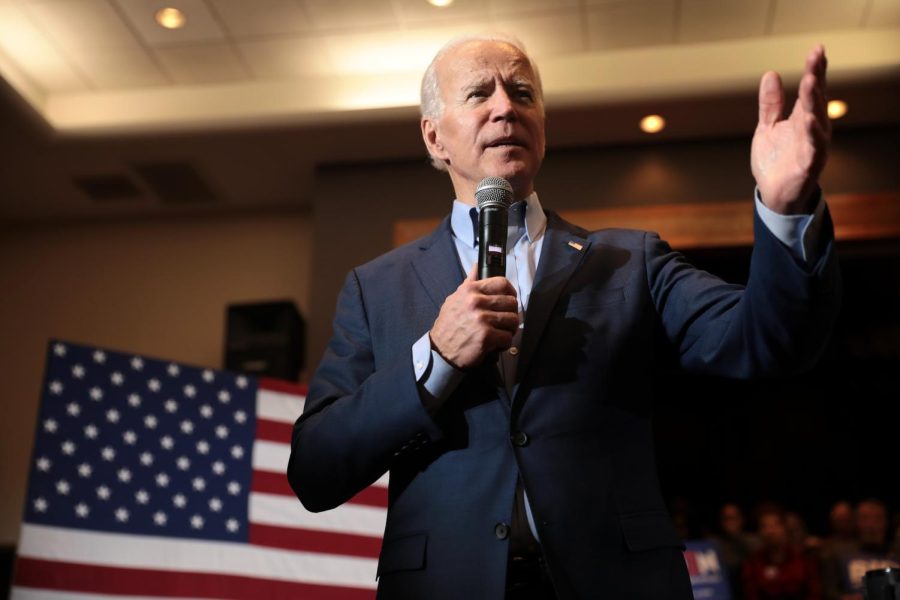Biden Breakdown: Zero Hunger 2030
The Biden-Harris administration set ambitious goals to end hunger in America
In 2021 an estimated 13.5 million households including at least 2.3 million children, were unable to provide nutritious food to all members of their families.
“In America, no child should go to bed hungry. No parent should die of a disease that can be prevented,” said President Biden at the White House Conference on Hunger, Nutrition, and Health on Wednesday, September 28th.
His words were met with ample applause by those present at the first nutrition conference in over 50 years.
Before the original health conference, poverty, malnutrition, and how the government would aid those at home were at the forefront of citizens’ awareness.
Senator Kennedy’s tour of the Mississippi in 1967 urged the government to take action. “I’ve been to third-world countries and I’ve never seen anything like this.” Kennedy expressed, shocked at the quality of life for those living in poverty.
The following year, a CBS special report Hunger In America brought the realities of poverty into view with first-hand accounts from those experiencing atrocities throughout the country.
President Nixon held the first White House Conference on Food, Nutrition, and Health in December of 1969. The goal of this three-day-long conference was to draft recommendations in an attempt to guide national nutrition policy. 5.000 participants voted on the final recommendations.
This conference resulted in food stamps being replaced by the SNAP program, school breakfast, and lunch programs, women and children benefits, and over 1,000 recommendations to be implemented drastically increasing the social safety net in America.
This time around citizens are most aware of chronic health issues highlighted by Covid-19 and, again 53 years later, poverty and aid in the homeland.
The Biden-Harris administration outlined five general goals at the 2022 conference as follows:
1. Improve Food Access and Affordability by increasing access to free and nourishing school meals; providing Summer Electronic Benefits Transfer (EBT) benefits to more children; and expanding Supplemental Nutrition Assistance Program (SNAP) eligibility to more underserved populations
2. Integrating nutrition and health by working with Congress to pilot coverage
of medically tailored meals in Medicare; testing Medicaid coverage of nutrition education
and other nutrition supports using Medicaid section 1115 demonstration projects; and
expanding Medicaid and Medicare beneficiaries’ access to nutrition and obesity
Counseling;
3. Empowering all consumers to make and have access to healthy choices by proposing to develop a front-of-package labeling scheme for food packages; proposing to update the nutrition criteria for the “healthy” claim on food packages; expanding incentives for fruits and vegetables in SNAP; facilitating sodium reduction in the food supply by issuing longer-term, voluntary sodium targets for industry; and assessing additional steps to reduce added sugar consumption, including potential voluntary targets
4. Supporting physical activity for all by expanding the U.S. Department of
Health and Human Services Centers for Disease Control and Prevention’s (CDC) State
Physical Activity and Nutrition Program to all states and territories; investing in efforts to
connect people to parks and other outdoor spaces, and funding regular updates to and
promotion of the Physical Activity Guidelines for Americans
5. Enhancing nutrition and food security research by bolstering funding to
improve metrics, data collection, and research to inform nutrition and food security
policy, particularly on issues of equity and access; and implementing a vision for
advancing nutrition science
While working closely with congress to pass federal legislation, the administration urges that the government can not achieve these goals without support.
“One thing is clear: meeting our bold goals requires a whole-of-government approach — a whole-of-government approach — and a whole-of-society effort,” said Biden
$8 billion in private- and public-sector commitments have been raised to achieve zero hunger by 2030.
Learn more about how savannah is working to end food insecurity and how you can offer aid.




